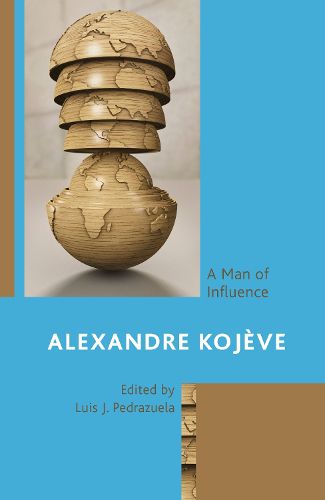Readings Newsletter
Become a Readings Member to make your shopping experience even easier.
Sign in or sign up for free!
You’re not far away from qualifying for FREE standard shipping within Australia
You’ve qualified for FREE standard shipping within Australia
The cart is loading…






This edited volume addresses Alexandre Kojeve’s work from different perspectives, emphasizing the continuity between his early reception of a set of non-philosophical and philosophical influences and that which he might have sought himself to exercise in a pedagogical and practical manner. The first part of the book comprises six essays in which their authors explore Kojeve’s understanding of art, religion and atheism, and his reception of the thought of Hegel, Marx, and Carl Schmitt. The book’s second part is made up by two contributions that tackle respectively Kojeve’s conceptions of the end of history and empire in the light of his notion of Sophia or Wisdom , and his understanding of the relationship between philosophy and power in the light of an exegetical reading of the debate he held with Leo Strauss. The authors of the final three essays set out to explore the extent to which Kojeve’s previous processing of a set of non-philosophical and philosophical influences might have resulted in three increasingly concrete outcomes, namely: his notion of authority; the Lacanian mirror-stage; and global trade.
$9.00 standard shipping within Australia
FREE standard shipping within Australia for orders over $100.00
Express & International shipping calculated at checkout
This edited volume addresses Alexandre Kojeve’s work from different perspectives, emphasizing the continuity between his early reception of a set of non-philosophical and philosophical influences and that which he might have sought himself to exercise in a pedagogical and practical manner. The first part of the book comprises six essays in which their authors explore Kojeve’s understanding of art, religion and atheism, and his reception of the thought of Hegel, Marx, and Carl Schmitt. The book’s second part is made up by two contributions that tackle respectively Kojeve’s conceptions of the end of history and empire in the light of his notion of Sophia or Wisdom , and his understanding of the relationship between philosophy and power in the light of an exegetical reading of the debate he held with Leo Strauss. The authors of the final three essays set out to explore the extent to which Kojeve’s previous processing of a set of non-philosophical and philosophical influences might have resulted in three increasingly concrete outcomes, namely: his notion of authority; the Lacanian mirror-stage; and global trade.